Heathen Worldview vs. Christian Worldview: A Fundamental Difference
The clash between the Heathen Worldview and the Christian Worldview stems from their divergent approaches to the world: one being World-Accepting and the other World-Rejecting. When pre-Christian Germanic peoples first encountered the Early Christians who arrived to convert them, it was a clash of wildly different ideologies. In many ways, Germanic values, ethics, and perspectives were the polar opposite of those espoused by these Christian missionaries and it boils down to one fundamental difference from which all the other divergences branch out: Christian worldview is World-Rejecting and soteriological while the Heathen worldview is World-Accepting and sociobiological (Russell, The Germanization of Early Medieval Christianity, pg 212).
The Christian Worldview: A World-Rejecting Perspective
Understanding the Christian View of the World
So what does that mean? The foundation of the Christian worldview can be summarized quite succinctly in the Gospel of John:
1 John 2:15-17 NIV
“Do not love the world or the things in the world. If anyone loves the world, the love of the Father is not in him. For all that is in the world—the lust of the flesh, the lust of the eyes, and the pride of life—is not of the Father but is of the world. And the world is passing away, and the lust of it; but he who does the will of God abides forever.”
1 John 15: 18-20 NIV
“If the world hates you, know that it has hated me before it hated you. If you were of the world, the world would love its own; but because you are not of the world, but I chose you out of the world, therefore the world hates you.”
Christianity teaches that one should reject the world, and the world will then reject you. That the breadth of human experience, in all of its complicated splendor, should be spurned so that you can instead focus on their god and what comes after death. That as a Christian you’re only passing through the world, and as a result you not only do not belong; you are hated because of your choice to not belong.
The Heathen Worldview: Embracing the World
Living Fully in the World
Conversely, the foundation of Heathen worldview can be captured in an excerpt from the Hávamál, strophes 68 & 69:
68) A bonny fire is a blessing to man,
and eke the sight of the sun;
his hearty health, if he holds it well,
and to live one’s life without shame.
69) All undone is no one though at death’s door he lie:
some with good sons are blessed,
and some with kinsmen, or with coffers full,
and some with deeds well-done.
In the Heathen worldview, the important things in life are how you live it, and embracing – – not rejecting, the world around you. From the warmth of the campfire to the sight of the brilliant sun in the sky, to the Elysian contentment you feel in the company of your family and friends. You are not a separate entity from the world. You are the sum of your experiences, actions, achievements, accumulated wealth, and the family you build and cherish. These are all in the world and you as an individual are inseparable from that world. The world isn’t a waiting room you must endure until you can “shuffle off this mortal coil” and receive a posthumous reward for abstaining from life here. Your reward was the life you lived; what you built, the great deeds you did, your accomplishments, your impact, and the impression you left. The reward was the journey and it is not undone when your life ends.
Vilhelm Grønbech’s Reflection on the Heathen Approach to Life
The most stirring description I’ve read of this state of living in the world comes from philologist Vilhelm Grønbech in his introduction to his two-part work, The Culture of the Teutons:
“Here comes a man in whose face the whole world, of nature and of man, is reflected. The beauty of nature, the beauty of mankind, man’s heroism, woman’s love — these things thrill him, and lead him into ecstasy; he feels and feels till his soul is ready to burst — and then pours forth a lyric flood, plaintive and jubilant, wistfully pondering and earnesting exalting all that delights the eye. A religious ecstasy comes over him, he gives himself up to the invisible, grasping and surrendering himself at once, living the invisible as a reality with real joys and real sorrows; he flingers himself over into the full experience of mysticism, yet without losing hold of the visible reality — on the contrary, his inner sense takes its fill of the beauty of nature, of delight in the animal life of earth and air.”
The Importance of Honor and Fame in the Heathen Worldview
Heathens are called to live their life to the fullest, unapologetically, and without shame. It is not a “sin” to be exceptional and extraordinary. Where in Matthew 5:5 it is stated “Blessed are the meek, for they shall inherit the earth” the Heathen instead ritualized beot, or boasting to share their great & heroic deeds with their community and swear an oath to perform further deeds during symbol, a drinking ritual. Then the scop, or poet, would immortalize their accomplishments in verse thus spreading their fame (The Well and the Tree: World and Time in Early Germanic Culture, Paul Bauschatz pg. 73-78). Pollington asserts that “this notion of fame is central to the warrior ethos. The goal of every warrior was to be considered worthy and honorable in the hope that, after death, his name would live on in the stories and poems to be told for generations to come” (The Meadhall, Stephen Pollington, pg 56). One should not only strive to be great, noteworthy, and remarkable but also seek recognition as such which is quite irreconcilable with the Christian concept of meekness.
The Impact of Germanization on Christianity
Christianity’s Adaptation to Germanic Ideals
Finally, further evidence of this divide in fundamental worldview can be observed, unironically, in the way Christianity altered its own fundamentals to appeal to Germanic peoples who as a cohort, were particularly resistant to conversion. James C. Russell covered this topic extensively in “The Germanization of Early Medieval Christianity: A Sociohistorical Approach to Religious Transformation”, and I’m going to highlight some of his points here with in-text cited page numbers to be referenced.
The policy of the early Church which was intended to be temporary but opened the door to Germanization was Accommodation. “Whereas straightforward preaching often resulted in the rejection of an alien world-view and coercion usually provoked resentment toward the new religion, by obscuring the substantial inherent disparity between Christian and Germanic world-views, the policy of accommodation allowed the missionaries to make inroads into the Germanic ethos and world-view” (Pg. 211).
Adapting Heroic Ethics and Rituals
So what accommodations were made that ultimately shaped Christianity and how were they spread across the greater medieval church? The meek, pacifist, and peace-loving nature of Christianity was supplanted with Crusader ideology to appeal to the pagan ideals of “…heroism, famous deeds on the part of the leader, loyalty on the part of the followers, revenge for those killed, courage unto death, contempt for a comfortable life at home.” (pg. 167)
Russell quoted Jan de Vries’ Altgermanische Religionsgeschichte to expound on this:
“When the church encountered pagan elements that it could not suppress, it tended to give them a Christian dimension, thereby assimilating them. This happened to the ethics of heroism. The whole crusading movement may justifiably be seen from this perspective; Christian knighthood cannot otherwise be understood. This evolution began in earnest only around the year 1000 … but prefigurations of it do, of course, appear earlier. To some extent, the development of the Christian cult of the archangel Michael symbolizes the process.” (pg. 167)
Magicoreligious Influences in Christianity
There were also magicoreligious influences that directly incorporated Heathen practices in “The worldly, magicoreligious, heroic, folk religiosity of the pre-Christian Germanic peoples was transferred from Odin, Tiwaz, Thor, and Freyja, and the shrines and amulets dedicated to them, to Christus Victor, his loyal saints, and their shrines and relics” which whether intended or not, was responsible for “the emergence of a worldly, heroic, magicoreligious, folk-centered Christianity.”(Pg. 188-189).
The Transformation of the Afterlife Concept: Purgatory and Beyond
Even the development of the concept of Purgatory is tied to Germanization, as the early Church sought to corrupt and distort the Heathen’s perceptions and experiences of this world and that of the one beyond.
Russel quoted Jacques Le Goff’s “The Birth of Purgatory” to illustrate:
“Even more, perhaps, than the Celtic, the Germanic imagination of the hereafter, by the time it becomes accessible to us, already seems to have been subjected to strong influence from the high culture of Latin Christianity.
Doubtless, the most important change was that the rather cheerful other worlds of primitive Celtic and German mythology turned somber, subterranean, and infernal under Christian influence. At the moment of Purgatory’s inception, we shall see how the optimistic Celtic (and perhaps Germanic) conception of a place of waiting and purification gave way to the image of Purgatory as cruel, for a time, as Hell, an image that came from oriental apocalyptic sources and from official Christian tradition. The old conception did not disappear completely but was rather absorbed into visions of Paradise. These ambivalent other worlds of “folklore” were forced to gravitate toward either the positive or the negative pole, while Purgatory lingered for a time, occupying the middle ground.” (Pg. 161-162)
That is to say, the Catholic Church created the transitive concept of Purgatory, and adopted it as doctrine, to polarize and divide the Heathen perceptions of the present world they share with their spirits, ancestors, and gods. All that was “good” experience was assigned to the “Paradise” of the afterlife, and all that was “bad” experience was assigned to Hell, leaving the in-between, “Middangeard” as a place of stagnant gloom which was worse than Hell for the Heathen.
They robbed the Heathen of the sense of wonder and magic they saw in this world; where the Cofgod spirits cohabitate with them in their homes, the Wight spirits of the land dwelled in the rocks, the trees, and the streams, and Woden the Wanderer walked amongst them while Thunor strikes his anvil across the sky.
Understanding the Shift
Breaking Free from the Christian Worldview
To begin understanding and walking the Heathen path, it is first necessary to understand how your current viewpoint was shaped and colonized by the overculture’s Christian World-Rejecting worldview, so that you can break it down and return to the Heathen World-Accepting worldview. It is only by embracing this world, and your experience in it, that you can truly understand further Heathen concepts like Honor, Frith, Luck, the Gift-Cycle, and how those connect to the relationships you seek to cultivate with the gods, spirits, and ancestors. How you cultivate those relationships in a way that honors them, is essential to your success.
Thank you for reading the first entry of the Middelweg Project and I look forward to our discussions on the socials!

